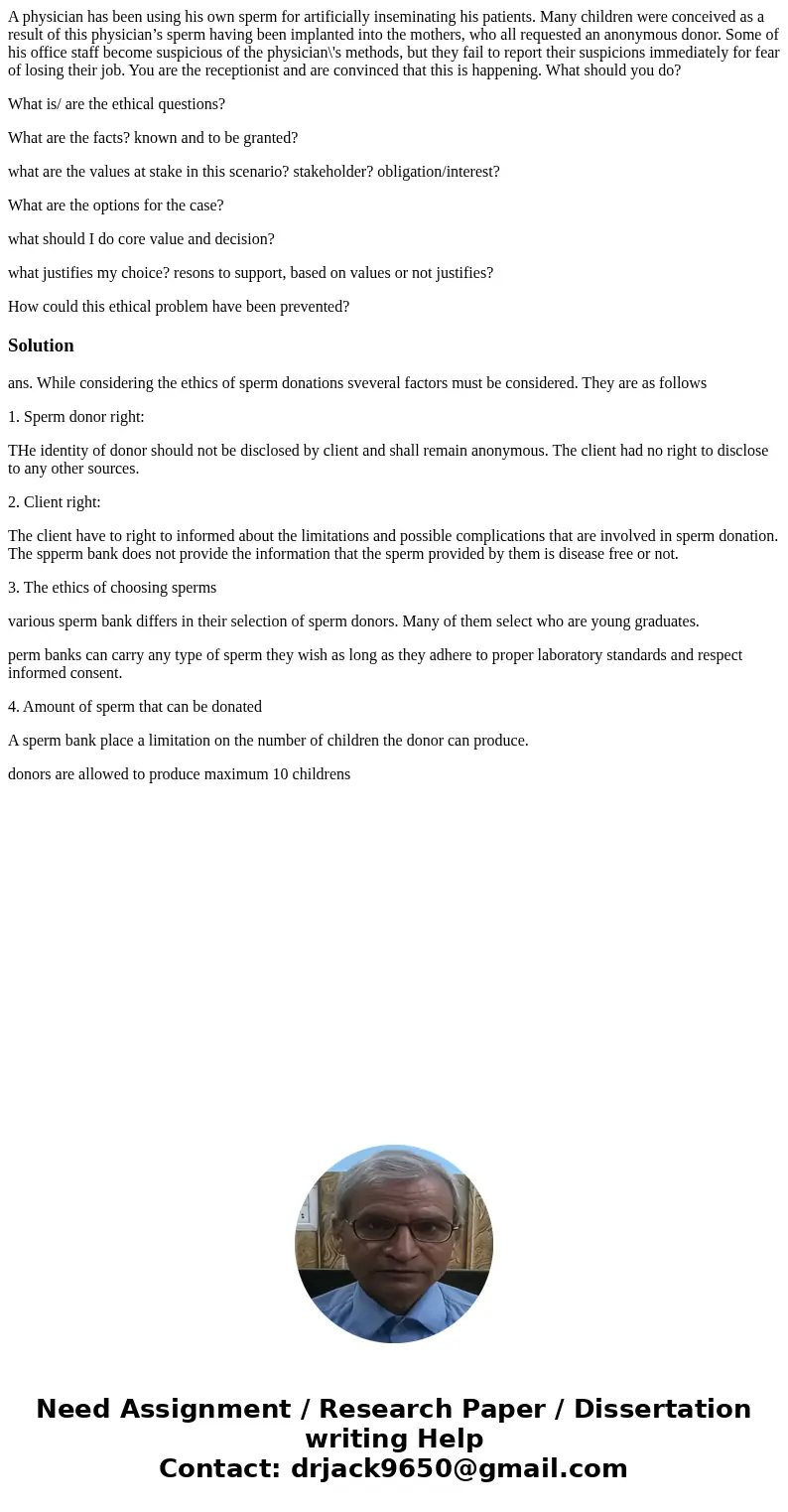A physician has been using his own sperm for artificially in
A physician has been using his own sperm for artificially inseminating his patients. Many children were conceived as a result of this physician’s sperm having been implanted into the mothers, who all requested an anonymous donor. Some of his office staff become suspicious of the physician\'s methods, but they fail to report their suspicions immediately for fear of losing their job. You are the receptionist and are convinced that this is happening. What should you do?
What is/ are the ethical questions?
What are the facts? known and to be granted?
what are the values at stake in this scenario? stakeholder? obligation/interest?
What are the options for the case?
what should I do core value and decision?
what justifies my choice? resons to support, based on values or not justifies?
How could this ethical problem have been prevented?
Solution
ans. While considering the ethics of sperm donations sveveral factors must be considered. They are as follows
1. Sperm donor right:
THe identity of donor should not be disclosed by client and shall remain anonymous. The client had no right to disclose to any other sources.
2. Client right:
The client have to right to informed about the limitations and possible complications that are involved in sperm donation. The spperm bank does not provide the information that the sperm provided by them is disease free or not.
3. The ethics of choosing sperms
various sperm bank differs in their selection of sperm donors. Many of them select who are young graduates.
perm banks can carry any type of sperm they wish as long as they adhere to proper laboratory standards and respect informed consent.
4. Amount of sperm that can be donated
A sperm bank place a limitation on the number of children the donor can produce.
donors are allowed to produce maximum 10 childrens

 Homework Sourse
Homework Sourse